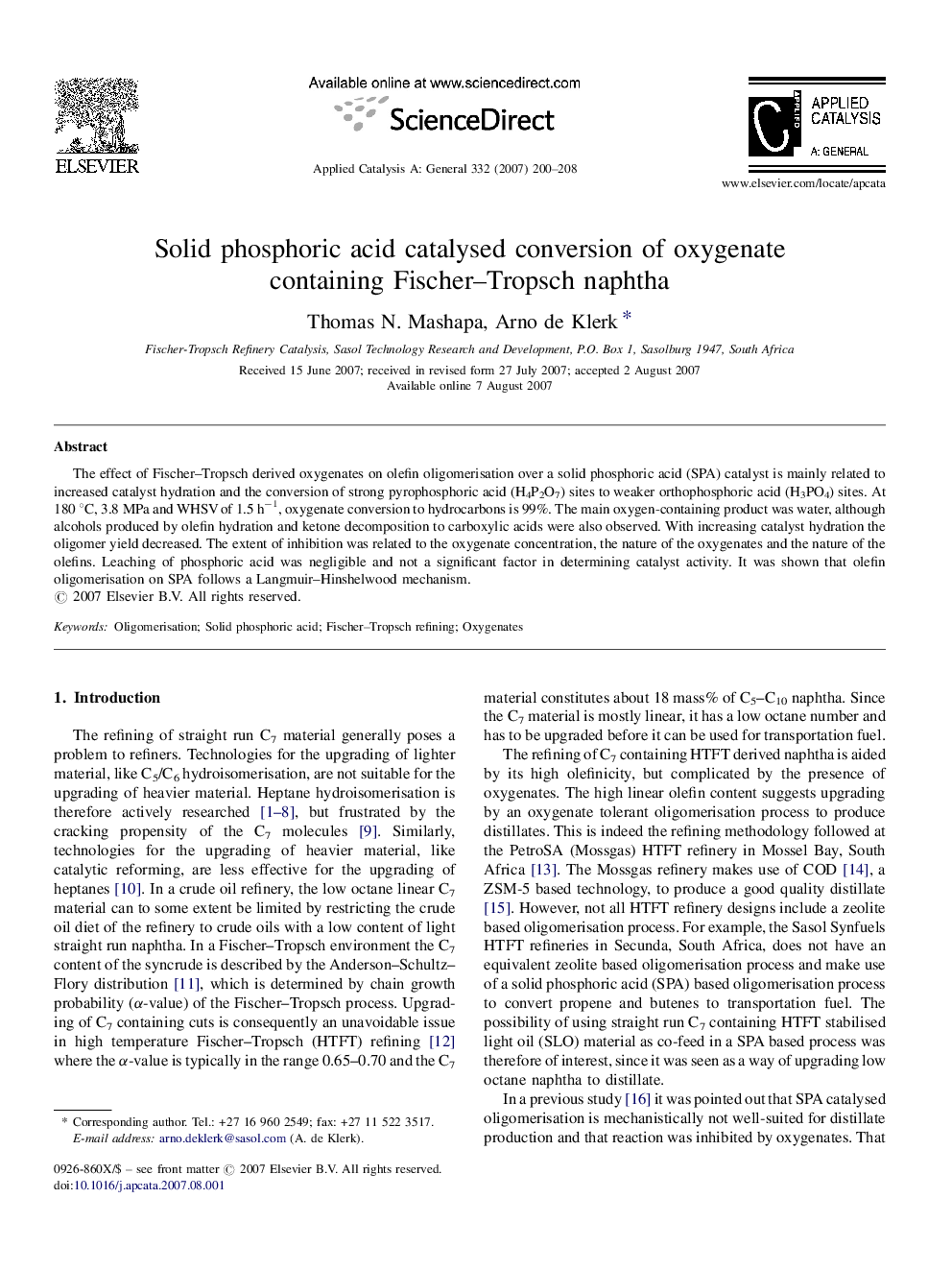| Article ID | Journal | Published Year | Pages | File Type |
|---|---|---|---|---|
| 44003 | Applied Catalysis A: General | 2007 | 9 Pages |
The effect of Fischer–Tropsch derived oxygenates on olefin oligomerisation over a solid phosphoric acid (SPA) catalyst is mainly related to increased catalyst hydration and the conversion of strong pyrophosphoric acid (H4P2O7) sites to weaker orthophosphoric acid (H3PO4) sites. At 180 °C, 3.8 MPa and WHSV of 1.5 h−1, oxygenate conversion to hydrocarbons is 99%. The main oxygen-containing product was water, although alcohols produced by olefin hydration and ketone decomposition to carboxylic acids were also observed. With increasing catalyst hydration the oligomer yield decreased. The extent of inhibition was related to the oxygenate concentration, the nature of the oxygenates and the nature of the olefins. Leaching of phosphoric acid was negligible and not a significant factor in determining catalyst activity. It was shown that olefin oligomerisation on SPA follows a Langmuir–Hinshelwood mechanism.
Graphical abstractThe influence of Fischer–Tropsch derived oxygenates on olefin oligomerisation over a solid phosphoric acid (SPA) catalyst is described (180 °C, 3.8 MPa). Oxygenate conversion to hydrocarbons is 99%, which increased catalyst hydration and the conversion of strong H4P2O7 sites to weaker H3PO4 sites. This caused a decrease in oligomer yield.Figure optionsDownload full-size imageDownload as PowerPoint slide
